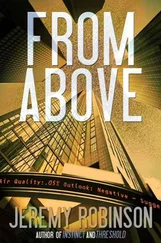Jeremy Clarkson - Motorworld
Здесь есть возможность читать онлайн «Jeremy Clarkson - Motorworld» весь текст электронной книги совершенно бесплатно (целиком полную версию без сокращений). В некоторых случаях можно слушать аудио, скачать через торрент в формате fb2 и присутствует краткое содержание. Город: London, Год выпуска: 2004, ISBN: 2004, Издательство: Penguin, Жанр: Прочая документальная литература, Юмористическая проза, на английском языке. Описание произведения, (предисловие) а так же отзывы посетителей доступны на портале библиотеки ЛибКат.
- Название:Motorworld
- Автор:
- Издательство:Penguin
- Жанр:
- Год:2004
- Город:London
- ISBN:978–0–141–90136–7
- Рейтинг книги:5 / 5. Голосов: 1
-
Избранное:Добавить в избранное
- Отзывы:
-
Ваша оценка:
- 100
- 1
- 2
- 3
- 4
- 5
Motorworld: краткое содержание, описание и аннотация
Предлагаем к чтению аннотацию, описание, краткое содержание или предисловие (зависит от того, что написал сам автор книги «Motorworld»). Если вы не нашли необходимую информацию о книге — напишите в комментариях, мы постараемся отыскать её.
Motorworld — читать онлайн бесплатно полную книгу (весь текст) целиком
Ниже представлен текст книги, разбитый по страницам. Система сохранения места последней прочитанной страницы, позволяет с удобством читать онлайн бесплатно книгу «Motorworld», без необходимости каждый раз заново искать на чём Вы остановились. Поставьте закладку, и сможете в любой момент перейти на страницу, на которой закончили чтение.
Интервал:
Закладка:
Jeremy Clarkson
MOTORWORLD
For Francie
Italy
I’ve been fortunate enough over the years to stay in many truly outstanding hotels where obsequious waiters compete for your attention with the view — hard when it’s Hong Kong harbour, San Francisco Bay or St Mark’s. But my favourite is the Locanda del Sant’ Uffizio-Da Beppé in Asti, where I stayed when we were filming the Fiat Coupé for Top Gear .
It’s a beautiful building, the food is as good as you’ll eat anywhere and the owner redefines the concept of friendliness. Here’s a man who would very probably stick his tongue down your throat if you ever went back for second helpings.
But I enjoyed my four-day stay there most of all because over lunch, on the second day, we shared the dining room with an Italian family.
I’m not talking here about a bearded father in grey shoes, a woman called Janet in Marks and Spencer’s finest and two children. I’m not talking about the near-silence that accompanies most British family days out.
No, here we had granddad and grandma, her mother, their six children, various in-laws and an indeterminate number of grandchildren. It was impossible to say how many exactly because they were never all at the table at the same time — they’d get one seated and another would be off, making tyre-squealing noises round the dessert trolley.
It was a huge feast which appeared to have been ruined as the eighth course was being cleared. Two of the sons started to argue so loudly that pretty quickly everyone within twelve feet was sucked in. Minutes later, it was out of control.
Arms and legs were flailing from one side of the room to the other. Granny was on her feet, pointing at one of her daughters, who looked fit to burst. The babies were screaming. This was one big family bust-up.
Which turned out to be about the Fiat Tipo — or, specifically, how economical it is. In Italy, a family hatchback can tear apart a family.
Now, if they get this passionate over the Fiat Tipo, can you begin to imagine what it’s like to drive there? Well, I’ll tell you. Like a roller-coaster without rules.
The road from Turin down to the Italian Riviera is one of the most beautiful in Europe, but on this occasion it was being ruined.
It wasn’t that the ancient Fiat Ritmo in front was being driven slowly — far from it — but I had a 3.0-litre V6 Alfa Romeo and I wanted to go even faster. I wanted to hear that magnificent engine sing because stuck behind that Fiat it was only humming.
Eventually, the road straightened out and, as I passed, I noticed that the driver of the Fiat was a toothless peasant farmer who’d seen at least 80 summers. His face was as wizened as a walnut and about the same colour too. It could well have been a walnut, actually.
But then I got down to the job in hand — having fun with a great car, on a great road, in a great country — and Walnut Face was erased from the memory.
This was a mistake because, fifteen miles later, he was back. I’d pulled onto the wrong side of the road to make the oncoming hairpin less tight and he shot through on the inside, wheels locked and grinning the grin of a madman. He really was as nutty as he looked.
For fifteen miles I’d strained to read the road ahead, not realising that the real danger was darting about in my rear-view mirror. Walnut Face had been overtaken and he was going to get back in the lead if it bloody killed him. Welcome to Italy, where all the world, it seems, is a racetrack.
You want proof. Okay, here it comes. Two years later, I was flat out on the autostrada but this wasn’t good enough for the car behind which desperately, and very obviously, wanted to get past. It was close enough for me to notice, through the glare of its headlights, that it contained four nuns.
Shortly afterwards I was testing a Sierra Cosworth in Sicily and wanted to see if Ford’s claimed top speed of 150 mph was accurate. The road was straight and so I went for it.
But as I was eking out the last vestiges of power, doing about 147 mph, I encountered a police van trundling along the inside lane which caused me to brake, shall we say, pretty violently. The door of the van slid back and out came a uniformed arm.
This was big trouble… except for one small thing. This was Italy, and the hand was ordering me to go faster. These guys also wanted to know how fast a Sierra Cosworth would go so they could discuss it, noisily and with much fork pointing, over supper that night.
As Professor Franco Ferrarotti of Rome University put it, ‘We have a speed limit in Italy, of course. It is the top speed of your car.’
Giovanni Agnelli, the most powerful man in the country and the owner of Fiat, among other things, goes further. ‘Let’s say the Italians are very hard to discipline, especially if it’s something they don’t like.’
If someone introduces a law there which doesn’t go down well with the people, they don’t organise protest marches, they just ignore it. And because the police are people too, they don’t bother trying to enforce it either.
Speeding is a big thing. Only very recently, a social democratic minister made a big stand on the issue, getting on one or other of the country’s 1200 television stations every night to talk about the dangers of driving too quickly. He imposed new laws, whipped up the police and was rewarded with the sack.
In Italy, you sometimes get the impression they’d be happier to lose the Pope than to lose their right to drive like maniacs.
The question that immediately springs to mind at this point is, why? I mean, we’re talking here about a country that thinks an emergency plumber is someone who can get to you within seven weeks.
That’s six weeks to process the order, six days to order the parts and 23 hours and 59 minutes arguing with the suppliers.
The actual drive from his workshop to your house, 19 miles away, is done in 30 seconds. Now, why should this be so? Why should Italians be so much faster and wilder on the roads than, say, the Germans or the British or the Spanish?
Experts point to the fact that Italy has been governed over the centuries by a myriad of different rulers. Just when the people got used to one set of ideas and one set of rules, another guy would come along and change everything. Remember, Italy has had 50 governments since the war.
So, individualism is a big thing. In Italy, the most important thing is to enjoy life, and if that means a few rules are broken, so what? The rules will change pretty soon anyway. The foot, they say, is more important than the shoe.
On top of this, Italy has only been a consumerist, industrialised country for one generation and they still can’t really believe that they can actually go down to the town and buy a car.
There was never a lengthy period when only the rich drove cars, giving them the cachet they’ve earned elsewhere in the world. One minute there were no cars and then bang, all of a sudden everyone had a replacement for their horse or bicycle.
The car in Italy has no appeal as a status symbol, says Professor Ferrarotti. ‘Italians love the way they are made. They have a fascination with machinery and driving a car blends in with our anarchistic bent.
‘You know it’s not difficult to govern the Italians — just unnecessary. You can have all sorts of laws here, just so long as they’re not enforced.’
And you only need to look around Rome to see what he means. The law says everyone has to wear a seat belt. But no one does.
The professor thinks he has a reason for this. ‘Of course, seat belts are very important and the Italians are the first ones to admit it… theoretically. But if you had to use your damn seat belt every time you got into your little Punto or your big Ferrari — if there are any such things in a Ferrari — well, it is like betting against yourself. It might invite disaster.
Читать дальшеИнтервал:
Закладка:
Похожие книги на «Motorworld»
Представляем Вашему вниманию похожие книги на «Motorworld» списком для выбора. Мы отобрали схожую по названию и смыслу литературу в надежде предоставить читателям больше вариантов отыскать новые, интересные, ещё непрочитанные произведения.
Обсуждение, отзывы о книге «Motorworld» и просто собственные мнения читателей. Оставьте ваши комментарии, напишите, что Вы думаете о произведении, его смысле или главных героях. Укажите что конкретно понравилось, а что нет, и почему Вы так считаете.












